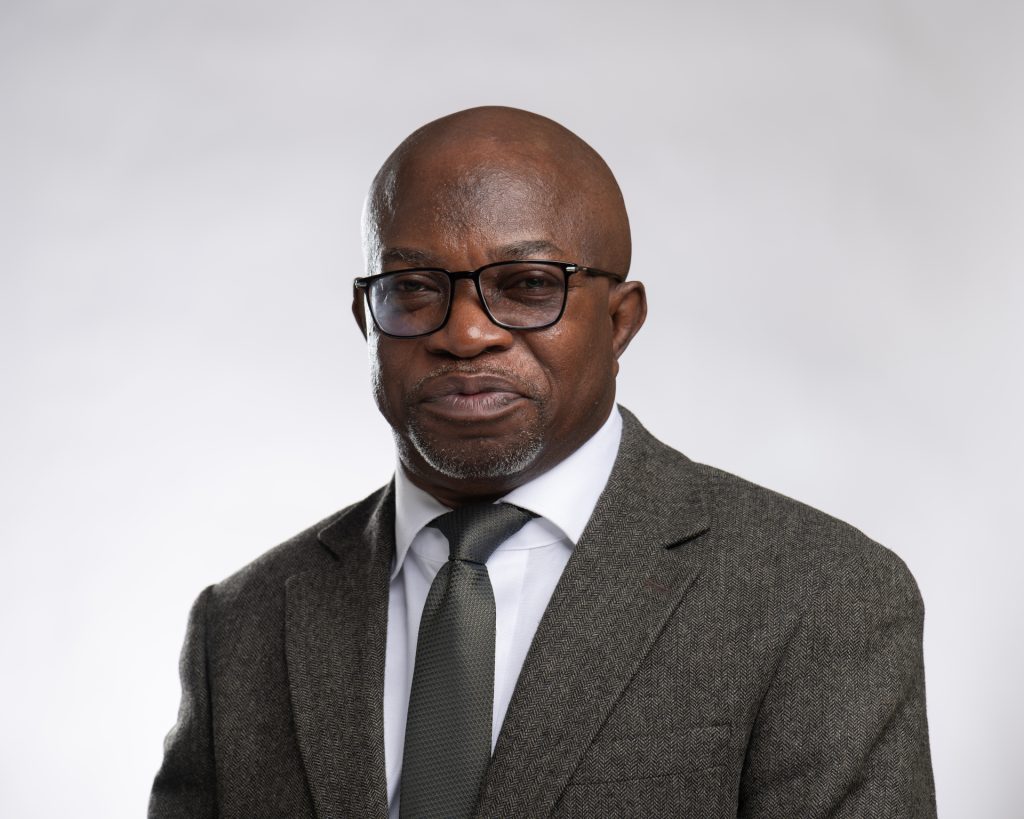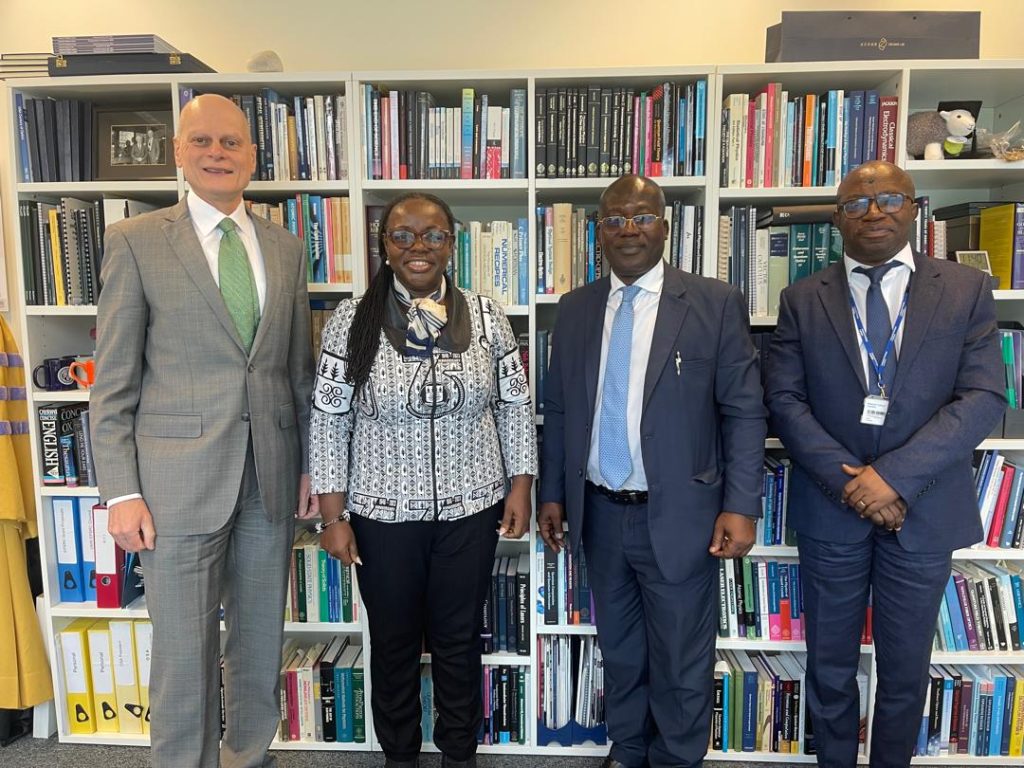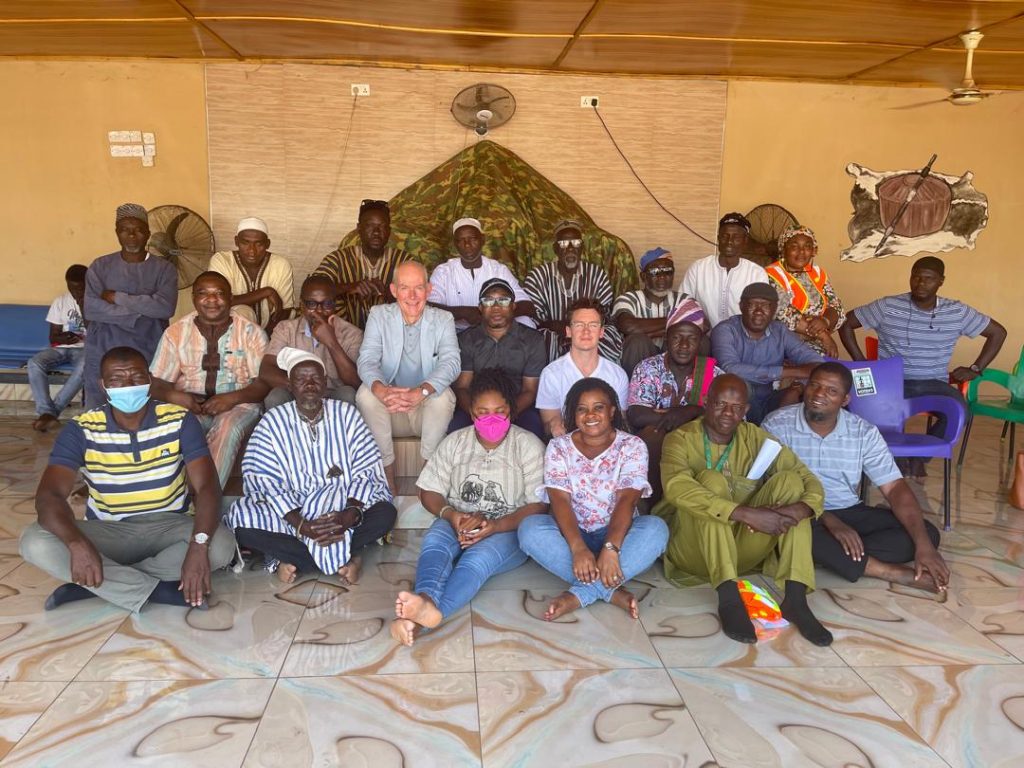Celebrating Black History Month

“The experience of being a visiting professor has been incredibly beneficial. I’ve been able to strengthen existing networks, develop new partnerships and collaborations, and deliver lectures to student and public audiences.”
Professor Samuel Agyei-Mensah is a Professor of Geography at the University of Ghana and a Visiting Professor in the Department of Civil and Environmental Engineering at Imperial College London. His current role at Imperial follows on from his position as Provost’s Visiting Professor (2023-24), a scheme established to improve the diversity of the university by hosting leading Black and minority ethnic academics.
Developing connections between Imperial and Ghana
Samuel learnt about the Provost’s Visiting Professor scheme through a colleague on the Pathways to Equitable Healthy Cities project, led by Imperial College London and funded by Wellcome Trust.
“The experience of being a visiting professor has been incredibly beneficial. I’ve been able to strengthen existing networks, develop new partnerships and collaborations, and deliver lectures to student and public audiences. In particular I’d like to thank my mentor, Professor Michael Templeton, who was incredibly supportive and instrumental in connecting me with new colleagues.

“It’s also afforded me the opportunity to work in a culturally diverse environment and gain a better understanding of British and European cultures and systems. It was interesting to experience university lectures in the UK – there are some things I’ll take back to my teaching in Ghana.
“I think it’s important for these types of partnerships to be reciprocal and I’m excited to see how the University of Ghana can facilitate research for students and academics from Imperial.”
During this period, Samuel facilitated the visit of the Vice-Chancellor of the University of Ghana to Imperial, a precursor to the signing of a Memorandum of Understanding between the institutions in June 2024.
Creating long-term impact for local populations
Samuel says that his interest in population and health geography began during his undergraduate studies, where he wrote his long essay on slums and their health problems in urban centres. During his Master’s and Doctoral programme at the Norwegian University of Science and Technology (NTNU), Samuel had the opportunity to develop this interest.
“My Master’s and Doctoral supervisor was a professor who was a medical geographer, and he took me under his wing, inspired me, and acted as a mentor. He invited some of the top professors in the field to NTNU to co-teach on some of the courses, which I drew a lot of inspiration from.”
Samuel has used his research to benefit local populations and create change that will provide benefit now and in the future. As a consultant for the World Health Organisation (WHO), he facilitated the organisation of policy workshops and research activities on land use, health and policy tracking. Through the Pathways to Equitable Healthy Cities Project, he’s informed urban policy and practice by generating evidence on air pollution patterns.

“There is an increasing realisation that traffic is contributing more to air pollution in Accra, Ghana’s capital. Through Pathways, we have been able to provide evidence on traffic to support advocacy for new regulations.”
Samuel facilitated the research on hybrid governance and co-production of flood risk adaptation in Tamale, Ghana with colleagues from Imperial, Kings College and University of Ghana, with funding from Pathways to Equitable Healthy Cities.
More recently, he has also supported the integration of climate change awareness and education in traditional governance formats in Tamale with colleagues from Imperial, University of Ghana, University of Liverpool and Invisible Flock. This project provided a weather station for the Nalung Community of Tamale. The research was funded by Research England International Science Partnerships Fund (ISPF) 2023/24 Global Development Hub ODA Project Accelerator.
What’s next?
Samuel is working on the Climate Change Resilient Equitable Healthy Cities in Africa (CLARITY-Africa) project (2024-2030), led by Imperial’s Professor Majid Ezzati and funded by the Wellcome Trust, which seeks to co-produce novel and transformative knowledge on how climate change affects environmental risk exposures, and who are vulnerable to these risks. The partnership was something he began planning during his time as Provost’s Visiting Professor.
Read next:
Find out more about Imperial Global, a core pillar of Imperial’s Science for Humanity Strategy.
Professor Samuel Agyei-Mensah’s interview for the Belonging series.